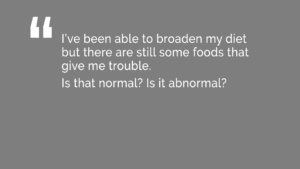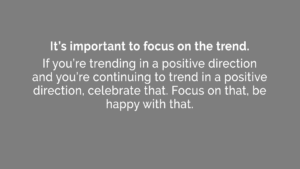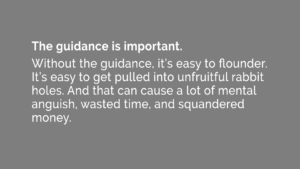Not Improved After Clearing SIBO, What You Can Do – A Patient Conversation
What do you do if you have cleared SIBO but still have symptoms? Sometimes, all that is needed is a subtle push to help your gut fully heal. Today we will speak with Catherine, who, after clearing symptoms with another doctor, was still suffering from the following symptoms:
- Loose stools
- Eczema
- Insomnia
- Gets cold easily and fingers turn white and numb
- Brain fog
- Underweight
A few strategic dietary modifications were able to resolve all these symptoms. Let’s elaborate.
Still suffering from symptoms after clearing SIBO?
This is not uncommon.
- Most experience positive results after a trial of probiotics and antimicrobials but still suffer symptoms like brain fog, eczema, acne, bloating, itching, etc.
- This does not always mean you have to do something drastic as a second step
- Many patients respond very well to the following approach if they have cleared SIBO but still suffer from symptoms/reactions.
- Try following the Low FODMAP Diet for a few weeks and take note of how you feel and your symptom relief
- Try different probiotics to see what you are responding well to (for Catherine 1 from each probiotic category worked well)
- Probiotics are broken down into 3 categories in my book Healthy Gut Healthy You so that you can identify what to try, and what each of them do.
- Try adding the Low Histamine Diet to Low FODMAP diet if the Low FODMAP diet seems to be trending in the right direction but you are still reacting to foods
It is not uncommon to struggle with a few foods even after a therapeutic period of 2-6 months.
- Time is an important component
- If you are trending in a positive direction, with time you will continue to improve
- Seek guidance and work with someone who can see you through to feeling better
Dr. Michael Ruscio: Hi, everyone. This is Dr. Ruscio. I’m here with Catherine who has had some nice results in improving her gut health but is also, I guess, grappling with some common questions that people have as they go through the process. So I thought we could briefly talk about her experience and some of the things that she’s been grappling with.
So Catherine, thank you for taking a moment to speak with us.
Catherine: Hi.
DrMR: Can you tell people a little bit about the symptoms that you were experiencing and, in short, the road that you had traversed up until you got to our office?

And biggest symptom was my digestive tract. It just wasn’t right, and it hadn’t been right for years and years. Having really loose stools all the time, undigested food, and lots of bloating. No constipation for me. So the opposite of some people.
DrMR: And had you performed any therapies before? I believe you had done some treatment in your gut health previously and seen some results. Am I encapsulating that?
Catherine: Yeah. I worked with a naturopathic doctor for a while, and we had tried using probiotics as well as some antimicrobials which seemed to really help with my eczema but didn’t do much for my digestion. And my eczema continued to kind of come back after a while. So it didn’t fully heal.
DrMR: Yeah. So I think you’re in a somewhat normal boat for people who have done some research, maybe seen another doctor, seen some improvements, but still had some of these things that didn’t feel like they were quite lining up. And that’s why I thought this would be a nice conversation to have.
And in your case, we didn’t have to do anything—for lack of a better term—drastic. We didn’t have to do really intense antimicrobials or use antimicrobials with antiviral agents. We did find a little bit of dysbiosis on your lab work, an assortment of different bacterial and fungal findings. The term dysbiosis is just a broad term for imbalances in the gut.

Now, all of your symptoms have responded: your bowel consistency, your eczema, your insomnia, your itchy skin, your brain fog. Even your female hormone-related symptoms have all improved. And there’s a couple of things there that I think are important to mention. One is that dysbiosis, imbalances in fungus and bacteria and other organisms in the gut, can be remedied with probiotics. And it’s important to keep that in mind.
And I think you just need a broader probiotic presentation to your gut to achieve the full response that you’re achieving now. Plus, you exhibited signs of being histamine-sensitive, which is so paradoxical because we’re so inundated with messaging that histamine foods, all the fermented foods, are healthy for you.
Catherine: Yeah.
DrMR: It’s not to say that they’re unhealthy, but if you’re consuming more than your body can metabolize, it can become problematic. And when people have impaired digestive health, they actually have impaired metabolism of histamine. And this is where a lower histamine diet can be very helpful. Did you want to comment at all regarding your experience with that?
Catherine: Yeah. Originally, we just tried the low FODMAP diet which is already lower in histamine, and I noticed drastic improvement with my eczema and my acne as well and my hormones and my sleep. But it wasn’t until recently when we added in the low histamine where finally I had relief from itching. I spent years just having non-stop itching all over my body. And for the first time in years, I have relief from that because of the low histamine. Also, my food is better digested with lower histamine. So that’s been nice to see every morning.
DrMR: And you make a great point. I’m glad you mentioned that the initial diet that we went through, which was the low FODMAP diet, and you did derive noteworthy benefit from that, but there were a few things that were not fully responding. And the addition to low histamine finally got us there.
And the way I look at this histamine issue is on a continuum where one of the first things we can do is use probiotics which, in many cases, can have an anti-histamine effect. From a dietary perspective, we can go low FODMAP first because that will reduce histamine. It has been shown in one published study.
And then we can even go further though to low histamine directly. And all these things can work together to kind of shift the tide out of this histamine overload which can be problematic for people. The final thing I wanted to discuss, because I think this is really important for people, all of your symptoms have improved. And they have remained improved for at least a few months.
Catherine: Yeah.

And I understand this question. This is a question that plagues many patients, which is having a hard time dealing with a handful of foods that they can’t or can’t well tolerate at the moment. What I answered your question with was that’s actually normal, and it’s not abnormal to see many things improve and having the ability to eat a broader array of foods after this initial therapeutic period, anywhere from, let’s say, two to six months roughly speaking.
But then, over the course of the next several months, you’ll notice these lingering food sensitivities may diminish with time. There may always be one or two foods that don’t ever sit well with you, but you should see that small cluster of foods that you’re reactive to diminish with months and months and months.
And I think that was very helpful for you to hear because it prevented you from thinking, Oh, my god, is there hydrogen sulfide SIBO or is it this or that? Because it can mess with your head mentally. So it’s important to understand kind of the greater context of how this typically presents.
Was there anything there that you felt people would benefit from hearing?
Catherine: Oh, just your reassurance was really helpful because I’m one of those people that loves to do research on the internet. It’s a good thing and a bad thing at the same time because you can constantly think that you’re not getting better or there’s always one more thing you can do. And maybe you are getting better and you just can’t see it; you need that reassurance.
And also, that knowledge that, yes, this does take time. There’s no magic pill you can take and you’re going to be 100% in a day or a week. So you just have to keep it up.

So, yes, it’s easy to focus on what’s not working. And again, context matters here. If you’re feeling generally unwell and you have one symptom that’s looking good, you don’t want to positive-think your way into a foolish situation where you’re focusing on one symptom that’s improved and the eight others are getting worse.
So don’t be a fool with how you look at this, but if all your symptoms or most of your symptoms are improving and your aggregate trend seems to be in a good direction, then take some solace in that and give your body some time and realize that sometimes those last couple of times that aren’t optimal may get there with just a little bit more time. That’s well said.
Anything you want to leave people with?
Catherine: Gosh. Just take care of your body and work with someone like Dr. Ruscio. This is the best I’ve felt in a very long time. I feel younger, but I’m getting older.
DrMR: That’s not a bad problem to have. It’s the best situation to hope for. And, yes, guys, I would say work with a clinician. Or there’s also my book, Healthy Gut, Healthy You, which has a self-help plan that can walk you through some of this stuff.

Catherine, thank you so much for taking the time to speak with us today.
Catherine: Thank you. I appreciate it.
DrMR: My pleasure.
Catherine: Bye.
DrMR: Bye.
What do you think? I would like to hear your thoughts or experience with this.
- Get help clearing SIBO.
- Get your personalized plan for optimizing your gut health with my new book.
- Healthcare providers looking to sharpen their clinical skills, check out the Future of Functional Medicine Review Clinical Newsletter.
Discussion
I care about answering your questions and sharing my knowledge with you. Leave a comment or connect with me on social media asking any health question you may have and I just might incorporate it into our next listener questions podcast episode just for you!